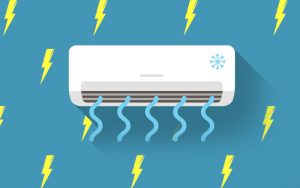How To Grow Your Own Vegetables
With the current state of the economy, many people are looking for ways to save money. One way to do this is to grow your own vegetables. Growing your own vegetables can be a fun and rewarding experience. With a little planning and some hard work, you can have a successful garden. Here are some tips on how to grow your own vegetables.
Why grow your own vegetables?
There are many reasons to grow your own vegetables. First, it is a great way to get fresh produce. Store-bought produce can be expensive, and it is often not as fresh as you would like. When you grow your own vegetables, you can pick them when they are ripe and at their peak of flavour. Second, growing your own vegetables is a great way to know exactly what is going into your food. You can control the amount of pesticides and herbicides used, as well as make sure that the soil is healthy. Finally, growing your own vegetables can be a fun and rewarding experience. It is a great way to get outside, learn about plants, and enjoy the vegetables of your labour.
The benefits of growing your own vegetables
There are many benefits to growing your own vegetables. For one, you know exactly what has gone into them. Store-bought vegetables may have been sprayed with pesticides or other chemicals. When you grow your own, you can use organic methods to ensure that your food is chemical-free.
Another benefit is that home-grown vegetables generally taste better than those from the store. They are fresher and have not been sitting in a truck or on a shelf for days or weeks.
Finally, growing your own vegetables can save you money. Even if you have to buy some of the supplies needed, such as seeds, soil, and fertiliser, it will still be less expensive than buying all of your vegetables from the store. And, of course, the more you grow, the more money you’ll save.
What you need to get started
Assuming you would like tips on starting your own vegetable garden:
Growing your own vegetables is a fun and rewarding experience. But before you get started, there are a few things you need to take care of. First, you need to choose the right location for your garden. Make sure the spot gets plenty of sunlight and has good drainage. Once you’ve found the perfect spot, it’s time to start preparing the soil. The best way to do this is to add compost or manure to the soil to help it retain moisture and nutrients.
Next, you need to decide what vegetables you want to grow. Some easy vegetables to start with are tomatoes, cucumbers, peppers, and beans. Once you’ve chosen your plants, it’s time for planting! Make sure you plant them at the right depth and space them appropriately according to the type of plant.
The best vegetables to grow
If you’re looking to start growing your own vegetables, there are a few that are relatively easy to grow and don’t require a lot of maintenance. tomatoes, peppers, and cucumbers are all good choices.
Tomatoes can be grown in pots or in the ground, and they don’t require a lot of water. Just make sure to give them enough sunlight – at least six hours a day. Peppers also do well in pots or in the ground, and like tomatoes, they need plenty of sunlight. Cucumbers can be grown on a trellis or fence, which will save space if you’re limited on room. They also don’t need a lot of water, but make sure they get at least eight hours of sunlight each day.
How to care for your vegetable garden
Assuming you have a basic understanding of how to grow your own vegetables, here are some tips on how to best care for your vegetable garden:
- Water regularly and deeply. Vegetables need 1-2 inches of water per week, either from rainfall or from irrigation. Water early in the day so the leaves have time to dry before nightfall, which reduces the risk of fungal diseases.
- Fertilize monthly with compost or a balanced fertilizer. This will help provide nutrients that vegetables need for healthy growth.
- Keep an eye out for pests and diseases. Be proactive in treating any problems that arise, as pests and diseases can quickly spread and devastate a vegetable garden.
- Harvest regularly.
Troubleshooting common problems
If you’re having trouble growing your own vegetables, there are a few things you can do to troubleshoot the problem.
First, make sure you’re planting the vegetables in an area that gets plenty of sunlight. Vegetables need at least six hours of sunlight each day in order to grow properly. If your garden isn’t getting enough sun, try moving it to a different location.
Second, make sure you’re watering your plants regularly. Plants need about an inch of water per week, so be sure to check the soil before watering to see if it’s dry. If it is, give the plants a good soaking until the water runs out of the bottom of the pot.
Third, make sure you’re using quality soil. Soil that is too sandy or too clay-like can make it difficult for vegetables to grow properly.
Conclusion
It is rewarding to grow your own vegetables. Not only do you get to enjoy the fruits of your labour, but you also get to know where your food comes from and how it was grown. Growing your own vegetables can also save you money.
If you are thinking about growing your own vegetables, there are a few things to consider. First, you will need to choose a location for your garden. You will also need to decide what type of vegetables you would like to grow. Once you have done this, you can purchase the seeds or starts from a local nursery or online retailer.
Once your garden is planted, be sure to water it regularly and fertilise as needed. You may also need pest control measures to keep insects and animals from damaging your crops. With a little care and attention, your vegetable garden will soon be flourishing!






Be First to Comment